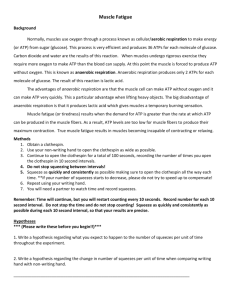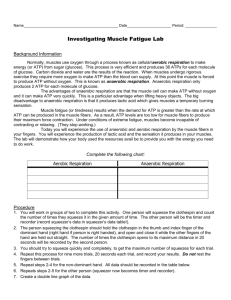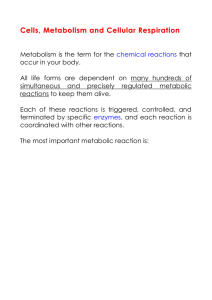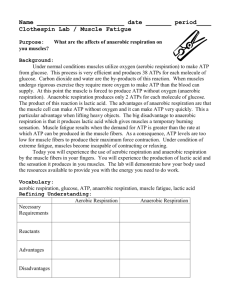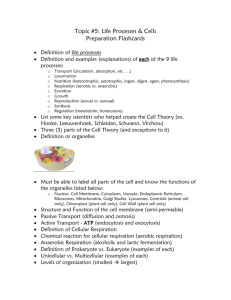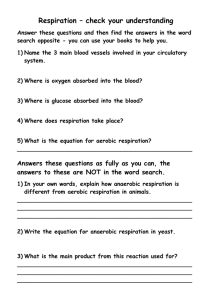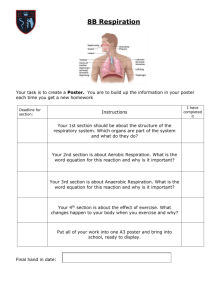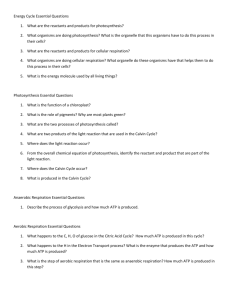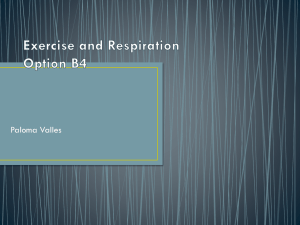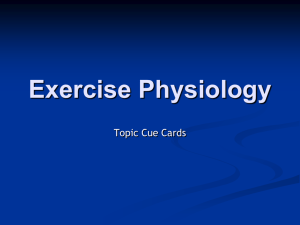Clothespin Lab
advertisement
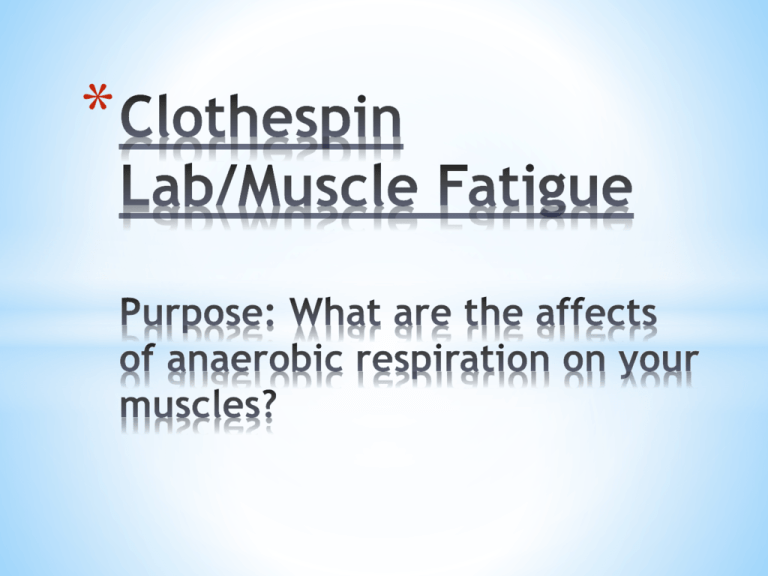
* * Aerobic Respiration Reactants Products Advantages Disadvantag es Anaerobic Respiration Background Info Under normal conditions muscles utilize oxygen (aerobic respiration) to make ATP from glucose. This process is very efficient and produces ~ 38 ATP’s for each molecule of glucose. Carbon dioxide and water are the products of this reaction. * When muscles undergo rigorous exercise they require more oxygen to make ATP than the blood can supply. At this point the muscle is forced to produce ATP without oxygen (anaerobic respiration). Anaerobic respiration produces only 2 ATP’s for each molecule of glucose. The product of this reaction is lactic acid. * The advantages of anaerobic respiration are that the muscle cell can make ATP without oxygen and it can make ATP very quickly. This a particular advantage when lifting heavy objects. The big disadvantage to anaerobic respiration is that it produces lactic acid which gives muscles a temporary burning sensation. Muscle fatigue results when the demand for ATP is greater than the rate at which ATP can be produced in the muscle fibers. As a consequence, ATP levels are too low for muscle fibers to produce their maximum force contraction. Under condition of extreme fatigue, muscles become incapable of contracting or relaxing. * Today you will experience the use of aerobic respiration and anaerobic respiration by the muscle fibers in your fingers. You will experience the production of lactic acid and the sensation it produces in you muscles. This lab will demonstrate how your body uses the resources available to provide you with the energy you need to do work. * If ________________________________ then _______________________________. * Materials: 1 clothespin, 1 timer, 1 pencil, 1 data table, 1 sheet of graph paper Procedure: 1. Hold the clothespin straight out and in between the thumb and forefinger of your non-writing hand. The rest of your fingers should be closed like a fist. 2. We will be doing five (30 second) trials with a 15 second break between trials. 3. When the teacher says “Go”, start squeezing the clothespin as many times as possible within the thirty second interval. Make sure you have opened and closed completely on each squeeze. 4. Keep a count of the number of times you have closed the clothespin and write the number down in the data table. 5. Graph the data that was just collected as a line graph. Label the xaxis with the trial number, and the y-axis with the number of squeezes. * Trial 1 2 3 4 5 # of Squeezes * * Graphing your data! (TAILS-G) * Line Graph * Write using complete sentences * What does the graph and data show? Explain your data. * Does this support or not support your hypothesis? * What were your sources of error (reasons why the numbers may not be accurate)? * How could this experiment be improved or expanded? * What does the data mean? BE SPECIFIC! USE DATA! * How does it relate to the purpose/hypothesis/question of the lab? * What are Sources of Error? * * * Write a discussion of this experiment in complete sentences. Be sure to include the answers to the following questions. * The “Data shows that….” * Explain the relation ship between the IV and the DV (the number of squeezes and the different trials). * How does this relate to what was learned in anaerobic and aerobic respiration? * Future study: what is something else concerning muscle fatigue that you would be interested in finding out the answer to?
